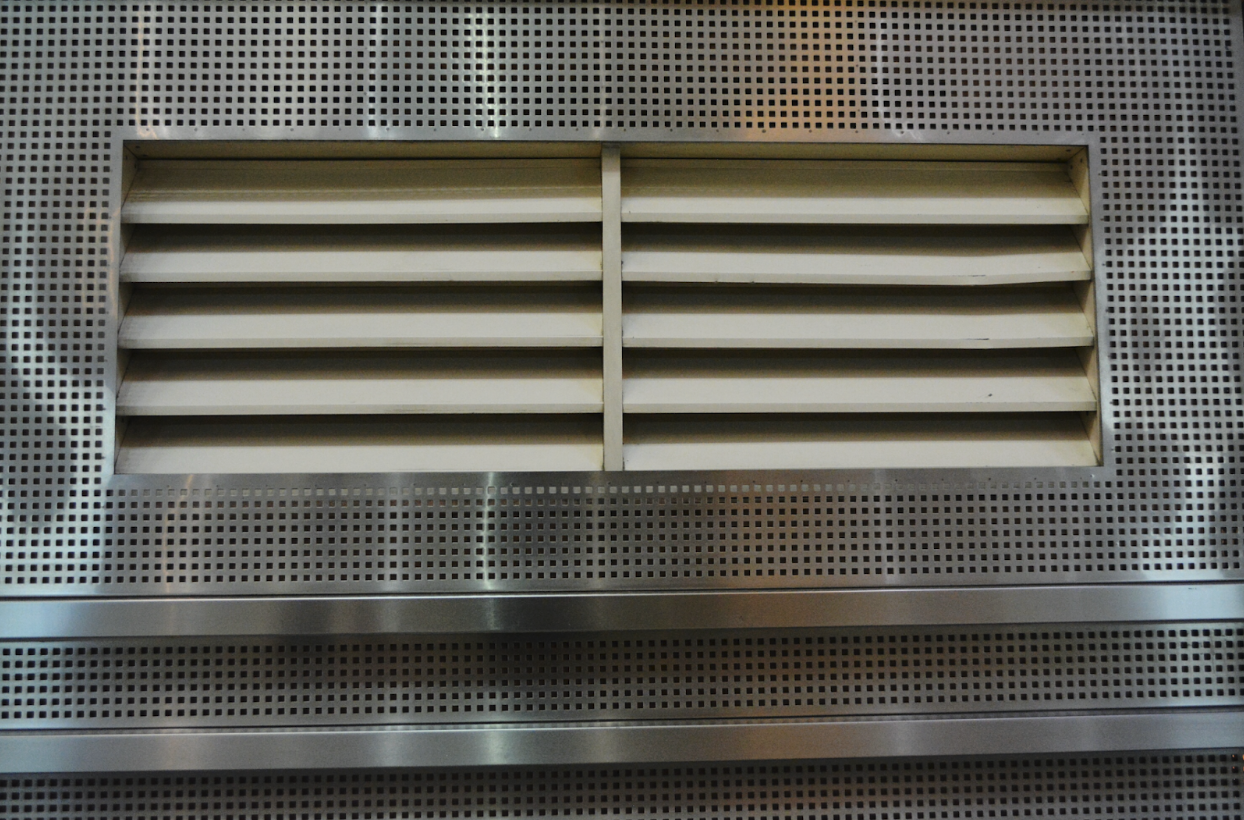
AMCA 550 and 540 Louvers: Certified Performance and Quality
Louvers play an important role in building ventilation systems—one that not only provides protection against water infiltration and debris but also ensures optimal airflow. However, areas that are prone to severe weather tend to require different types of louvers.
This is where AMCA 550 and 540 certifications come into play by setting high standards for performance and reliability.
Why Does AMCA Louver Certification Matter?
Although there are several types of standards of louvers, the AMCA certifications are typically designed to ensure that 550 louvers and 540 louvers perform under severe weather conditions. For instance:
Certified louvers protect buildings from water infiltration and debris damage, which is critical for maintaining structural integrity and safety, and they have to comply with building codes, such as the International Building Code (IBC) and Florida Building Code (FBC).
Not to mention, architects and engineers rely on AMCA-certified louvers for critical and essential facilities to ensure that they meet the highest standards of performance and reliability.
AMCA 550 Louvers: High-Velocity, Wind-Driven Rain Resistance
The purpose of the AMCA Louver 550 certification is to ensure that louvers can provide for high-velocity wind-driven rain resistance. To do this, the test simulates extreme weather conditions using wind speeds of 35, 70, 90, and 110 mph, combined with a rain rate of 8.8 inches per hour. Here’s how it works:
A fan generates these incredibly high wind speeds and water nozzles simulate driving rain. In order to pass the test, the louvers must allow less than 1% of water penetration.
AMCA 540 Louvers: Impact Resistance Against Windborne Debris
While the AMCA 550 assessment is used to measure the wind-driven rain resistance, the AMCA 540 assessment is designed to measure the level of impact resistance a louver has against windborne debris.
During this test, an air-powered cannon launches a 2”x4” timber at various velocities towards the louver.
Unlike the first test, however, the AMCA 540 louver assessment requires multiple samples with different configurations—both maximum width and height, as well as the smallest unsupported blade spans, without blade supports.
How AMCA 550 and 540 Compare to Other Standards
To further show the differences between the AMCA 550 and 540 louver requirements with other louver standards, let’s take a look at a few of the most common louver standards.
TAS 201
The TAS 201 standar—used in Miami-Dade and Broward counties—also tests louvers for impact resistance using an air-powered cannon to fire a 2” x 4” piece of timber.
However, AMCA 540 louver standard is considered more stringent because it requires multiple sample sizes and prohibits blade supports to have a more comprehensive assessment of the louver's durability and performance under stress.
TAS 100A
Both AMCA 550 and TAS 100A evaluate louvers' performance against high-velocity wind-driven rain. The testing procedures are similar, but AMCA 550 is increasingly recognized as an acceptable substitute for TAS 100A across many areas. This certification ensures that louvers can withstand heavy rainfall and high winds, which is crucial for maintaining the integrity of buildings in severe weather conditions.
FEMA Standards
FEMA standards, such as ICC 500, focus on the design and construction of storm shelters and have specific requirements for louvers in these contexts. While Miami-Dade NOA-approved louvers meet many stringent criteria, they do not necessarily meet FEMA standards unless tested under these specific guidelines.
AMCA 540 and 550 certifications, however, provide a solid foundation for performance in extreme weather conditions that aligns closely with the high expectations of FEMA standards.
Certified Louvers from Air Performance LLC
To meet the demands of stringent weather conditions, Air Performance LLC offers a diverse selection of AMCA 550 and 540 certified louvers. Here are some of our most popular:
WDV-75 and WDV-130
Air Performance LLC offers the WDV-75 and WDV-130 louvers, both certified to meet AMCA 550 standards.
These products feature advanced designs that effectively handle high-velocity wind-driven rain and provide optimal airflow. The WDV-75 and WDV-130 louvers are engineered for durability and performance, which makes them ideal for use in hurricane-prone regions.
D-HV-6 and D-HV-9
The D-HV-6 and D-HV-9 louvers are certified under AMCA 540, which emphasizes their robustness against windborne debris impacts. These louvers are designed to maintain their structural integrity even under the most challenging conditions, in order to provide reliable protection for critical facilities. Their performance in AMCA 540 tests highlights their suitability for areas exposed to severe weather to help ensure safety and reliability.
Why Use the AMCA 550 louvers From Air Performance LLC
There are a lot of reasons why you should be interested in using the 550 louvers from Air Performance. However, to make it easier—and simpler—we’re listing the most important reasons here:
Engineering Expertise
Simply put: we’re dedicated to delivering high-performance louvers that exceed industry standards. And our expertise in engineering and innovative design ensures each product is manufactured to the highest quality. Not to mention, we use advanced technology and rigorous AMCA 550 testing to guarantee the reliability and durability of our 550 and 540 louvers.
Sustainability
In addition to superior product design, we prioritizes sustainability and eco-friendly manufacturing practices, which sets us apart from which sets apart from the industry. Our products are not only certified for excellence but they are also tailored to meet specific project requirements.
Use the Superior AMCA 550 Louvers Air Performance For Better Ventilation
If you’re looking for an extensive range of certified louver solutions, we have what you need.
Our products meet the highest standards of quality and performance to help ensure optimal functionality and protection for your building projects.
Contact us today for more information!